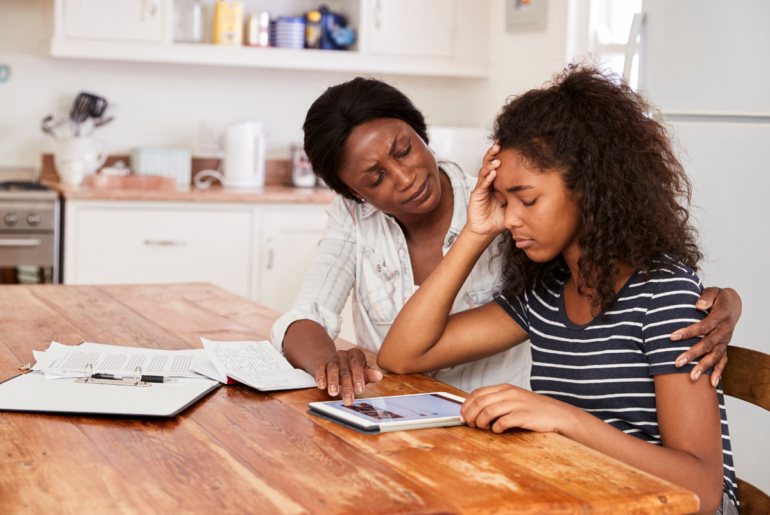Children get anxious just like adults do—our brains are wired to keep us safe from danger. Unfortunately, our brains often generate feelings of anxiety to warn us about things that only feel dangerous but aren’t actually a physical or existential threat, including things like embarrassment, failure, disappointing ourselves or someone we love, being away from a caregiver, or even just general uncertainty.
How can I tell when my child is feeling anxious?
Kids might not have the vocabulary to describe exactly what they’re feeling, or they may not realize what’s causing them to feel that way, so it can be hard to know when your child is suffering from anxiety aside from knowing something’s “not quite right.” Anxiety can show up in lots of different ways, but listening out for some key phrases can help you start to identify your child’s anxiety as it’s bubbling up so you can be aware and step in to help them regulate if needed.
Here are some phrases to listen out for that might mean your child is feeling anxious—
- “My tummy hurts” or “I feel like throwing up.”
- “I’m not hungry.”
- “I don’t want to go to school.”
- “But what if…”
- “But I can’t sit still!”
- “I need to pee… again.”
- “My legs/arms hurt.”
- “I’m tired” and/or “I can’t sleep.”
- “I can’t do it!”
Although some of these phrases may seem unrelated to your child’s emotional state, there are all kinds of mental and physical effects of anxiety that can clue you into what they’re feeling. In addition to the phrases above, be on the lookout for other indications that your child may be experiencing any of the following impacts of anxiety—
- Digestion: Anxiety slows digestion in case we need to fight or flee, causing stomach trouble.
- Avoidance: Kids might want to avoid a stressful situation, or any situation (like school) that involves overwhelming pressure while their body is focused on surviving.
- Anger or physical pain: The “fight” part of fight or flight can cause tight muscles, tense outbursts, sleep issues, racing thoughts, fidgeting, or other physical symptoms.
What should I do if my child is feeling anxious?
If you notice these phrases or symptoms coming up often for your child, take note of when they occur—is it regularly in the same situation, after the same activity, before bed, etc.? You should also take note if they happen along with other symptoms of anxiety (like fast heartbeat, headache, tension, clammy skin, or avoidance).
Hearing these phrases doesn’t guarantee that anxiety is the culprit, but paired with the regularity, timing, or intensity, you’ll have a better idea of whether your child needs your support to feel safe and secure again. To help your child more effectively process and cope with their anxiety, here are some resources:
- Tips for helping younger kids cope with anxiety
- Tips for helping teens and tweens cope with anxiety
If you’re concerned that your child’s anxiety is disrupting their daily life, seek out professional guidance from your pediatrician or a mental healthcare provider.







